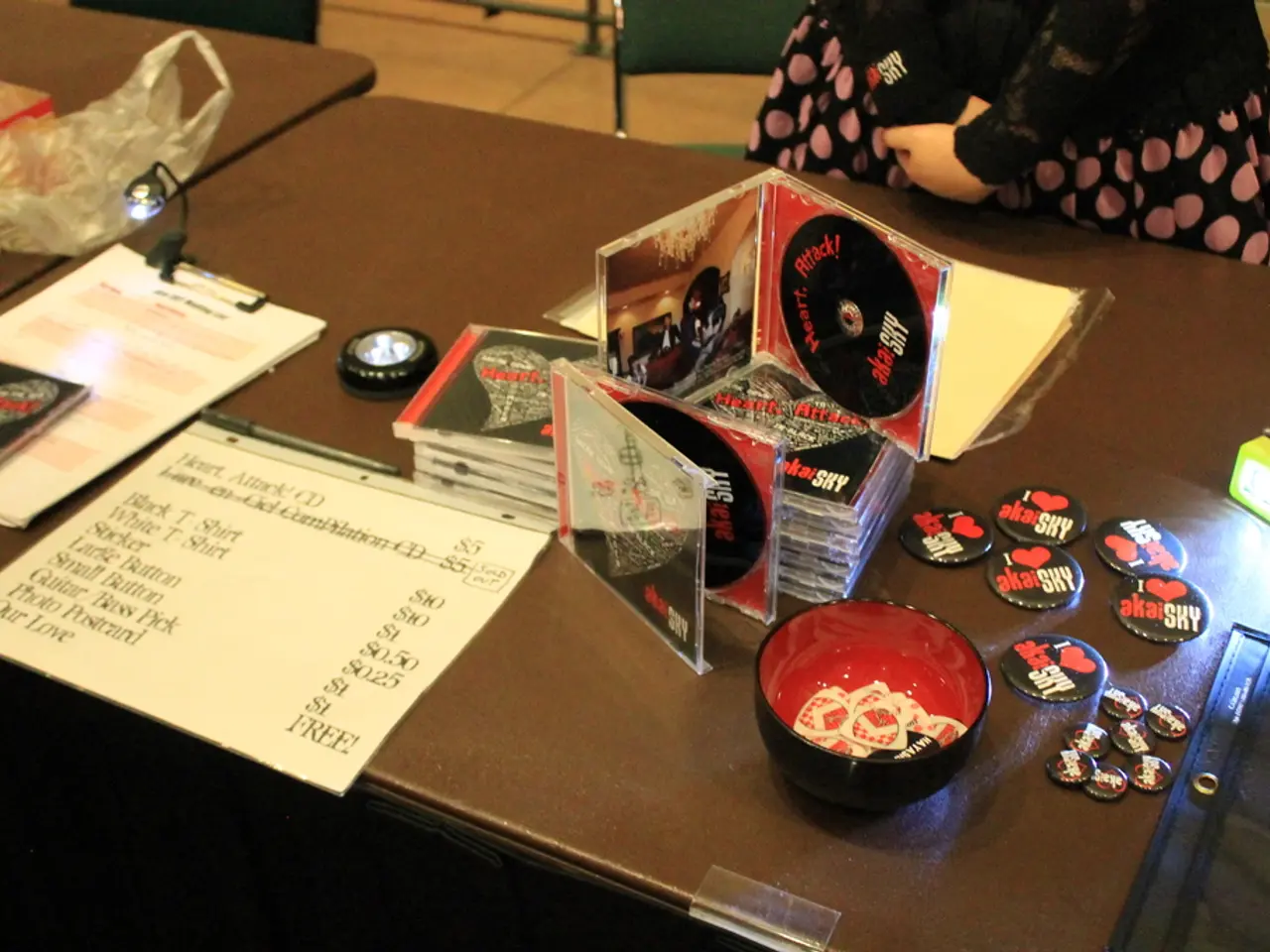Investors and Innovators Gathered: Collaborating to Maintain Fairness in Business Ventures
In the ever-evolving world of marketing, a new era has dawned - the Creator Era. This is the central finding of Billion Dollar Boy's 2025 Creator Economy Report, which reveals that creators have transformed from mere amplifiers of brand messages to architects of their own intellectual property (IP), audiences, and business ventures [1][2].
This shift signifies a fundamental change in brand marketing, moving towards co-creating serialized, entertainment-focused branded content and fully-fledged creator-founded businesses. In this new landscape, creators own more of the content ecosystem - IP, audience, and format - and move beyond one-off sponsored posts to producing serialized creator-led shows and entertainment franchises that rival traditional TV in reach and engagement [1].
Brands must adopt a producer mindset for co-creating content, treating branded series like entertainment slates with editorial guardrails, rapid approval loops, and clear non-negotiables to balance brand visibility and entertainment value [1]. Co-creation with creators has become more complex as they shift from paid partners to full founders and entrepreneurs, requiring clear guardrails to preserve brand equity and infrastructure support beyond simple payments to nurture creator loyalty [2].
The rise of commerce-enabled social platforms like TikTok Shops and major marketplace influencer programs collapses the gap between inspiration and transaction, challenging brands to ensure collaborations build mutual value rather than quietly funding competitors [2]. In this context, brands should shift from renting reach post by post to structuring partnerships that accrue value on both sides, by moving early, shifting budgets, and building systems.
The report also advises brands to plan for volatility in talent and to balance marquee names with niche specialists who anchor credibility in subcultures that cannot be reached alone. It emphasizes the importance of co-strategizing with creators, rather than just co-producing, to avoid fragmentation of the brand's core story.
Moreover, creators are asking for long-term investment, including education, wellness, business tooling, legal cover, and strategic mentoring. Brands willing to provide these layers move from transactional sponsor to preferred growth partner. However, when that support comes from agencies and platforms instead of brands, the power dynamic flips, and creators don't need your backend; they need your respect, strategic clarity, and a contract that treats them like the founder they are.
Boosting a creator post requires rigor, and Billion Dollar Boy stresses the need for creative quality systems, scorecards, shared dashboards, and rapid but disciplined review loops. Lastly, the report underscores the importance of holding on to the brand's DNA by partnering with creators like a builder, not a borrower, to ensure the collaborations compound into brand equity that endures long after the trend cycle turns.
In conclusion, the Creator Era demands a new approach to brand marketing. Brands must move from transactional sponsorship to strategic partnership and co-creation models, focusing on metrics that matter such as retention, repeat purchase, and contribution to brand lift, rather than vanity metrics. By studying creators' craft, implementing guardrails without handcuffs, and measuring success in meaningful ways, brands can navigate this new era successfully, ensuring a mutual learning experience and compounding brand equity that endures.
[1] Billion Dollar Boy. (2025). 2025 Creator Economy Report. [2] Various sources from Billion Dollar Boy's 2025 Creator Economy Report.
In this new era of brand marketing, creators are not only shaping their own intellectual property (IP) and audiences but also founding their own businesses, merging finance and lifestyle within the business realm (1). Moreover, the technology sector is playing a crucial role in this shift, as commerce-enabled social platforms like TikTok Shops facilitate transactions, bridging the gap between inspiration and commerce (2).




